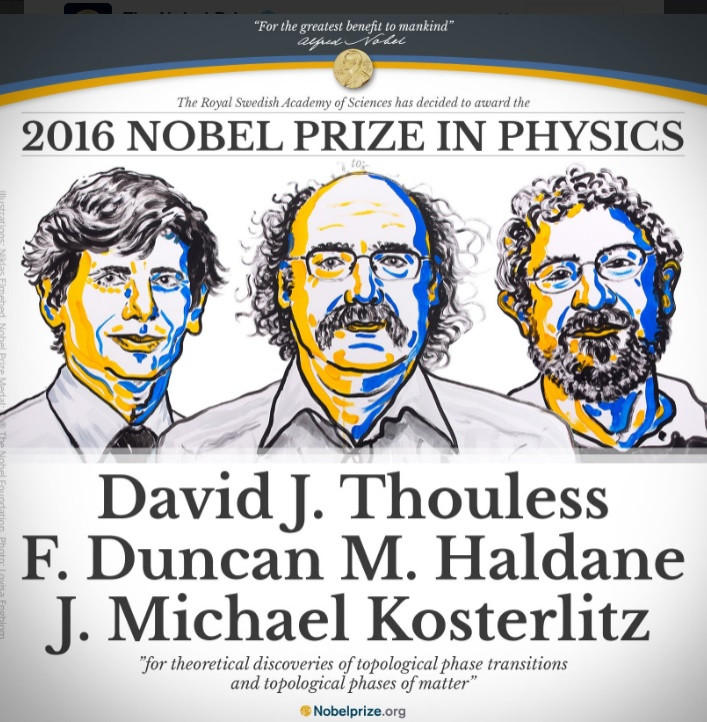British trio who discovered secrets of exotic matter awarded 2016 Nobel Prize in Physics
David J Thouless, F Duncan M Haldane and J Michael Kosterlitz win for topological phase transitions and phases of matter.

The 2016 Nobel Prize in Physics has been awarded to scientists who discovered secrets of exotic matter. David J Thouless, F Duncan M Haldane and J Michael Kosterlitz were awarded the prize for their theoretical discoveries relating to "topological phase transitions and topological phases of matter".
A statement from Nobel said: "This year's Laureates opened the door on an unknown world where matter can assume strange states. They have used advanced mathematical methods to study unusual phases, or states, of matter, such as superconductors, superfluids or thin magnetic films.
"Thanks to their pioneering work, the hunt is now on for new and exotic phases of matter. Many people are hopeful of future applications in both materials science and electronics."
The three physicists, all of them born in the United Kingdom, came up with the mathematical framework to explain properties of unusual phases of matter such as superconductors, superfluids and thin magnetic films.
Thouless now works at the University of Washington, Haldane at Princeton University and Kosterlitz is from Brown University in Rhode Island.
Over the 1970s and 80s, the scientists made breakthroughs in showing theories regarding superconductivity and suprafluidity were wrong.
Member of the Nobel committee for physics explains topology using a cinnamon bun, a bagel and a pretzel https://t.co/gORO04UYam
— The Nobel Prize (@NobelPrize) October 4, 2016
Over the last 10 years, their research has been used to boost frontline research into exotic matter. Furthermore, their research should pave the way for next generation electronics, quantum computers and superconductors.
To read more about their research, visit the Royal Swedish Academy of Sciences here.
This year's prize surprised many, with experts predicting the scientists that discovered gravitational waves would be awarded. Reacting to the news he has won, Haldane said: "I was, as everyone else is, very surprised. And very gratified ... A lot of tremendous new discoveries that are based on this original work are now happening."
© Copyright IBTimes 2025. All rights reserved.






















